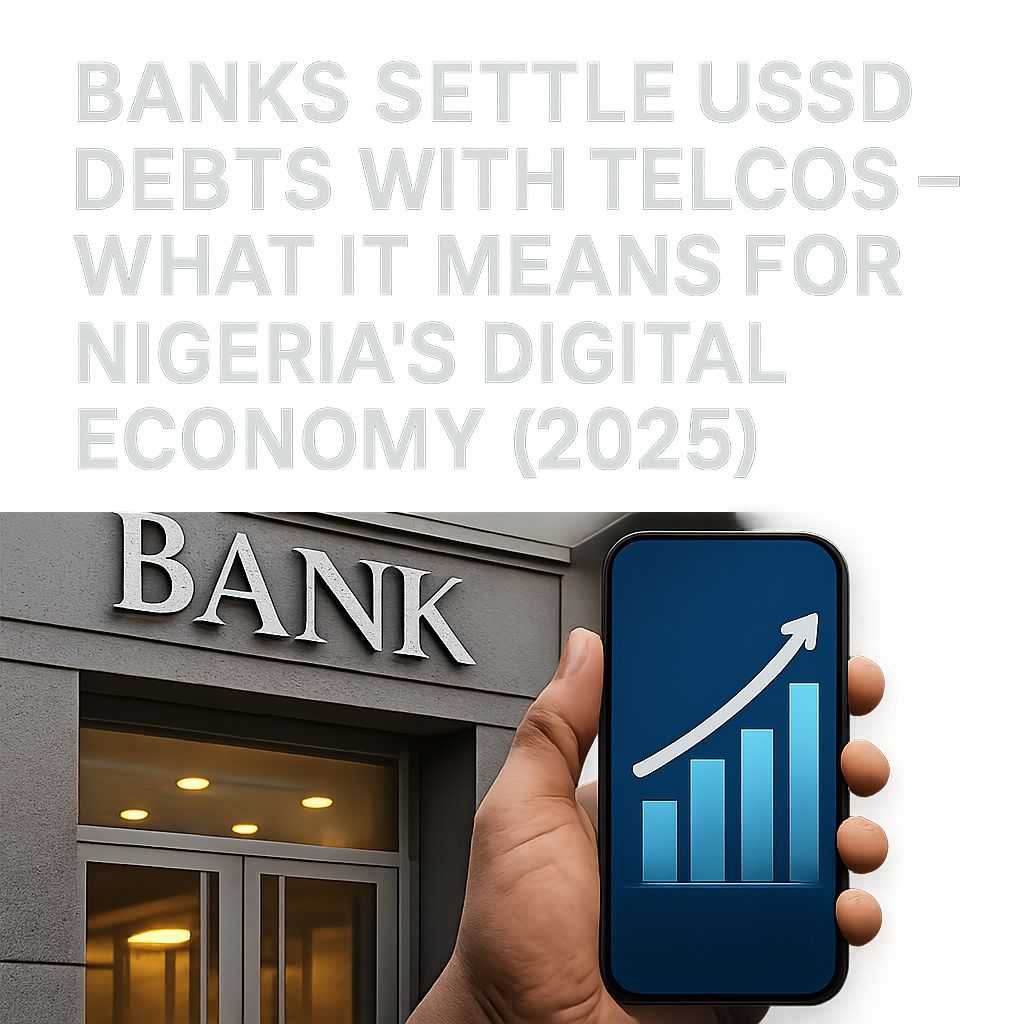 |
| Banks Settle USSD Debts with Telcos – What It Means for Nigeria’s Digital Economy (2025) |
In a major development that’s reshaping Nigeria’s digital banking and telecom landscape, commercial banks have finally settled billions of naira in outstanding USSD service debts owed to telecom operators like MTN, Airtel, Glo, and 9mobile. This resolution, reached in mid-2025, brings an end to a long-standing dispute that has disrupted services and delayed innovation in the mobile financial ecosystem.
In this article, we’ll explain what USSD is, how the debt issue started, why this settlement matters, and what Nigerians should expect going forward.
What is USSD, and Why Was There a Problem?
USSD (Unstructured Supplementary Service Data) is the short-code service (like *737#, *894#, *901#, etc.) used by banks to offer mobile banking without internet access. It’s essential for:
- Account balance checks
- Fund transfers
- Airtime purchase
- Loan applications
- Bill payments
For years, telecoms provided USSD connectivity, but banks refused to pay full usage charges, arguing that the service was “free to users” and the cost should be minimal.
By 2023–2024, debts owed to telcos by banks exceeded ₦200 billion, causing tension and service disruptions.
What Changed in 2025?
In 2025, under pressure from the Central Bank of Nigeria (CBN) and the Nigerian Communications Commission (NCC), commercial banks agreed to clear the debt through a staggered repayment structure.
Key resolutions include:
- Banks to pay ₦1.63 per USSD session going forward
- Settlement of all legacy debts in quarterly tranches
- Introduction of revenue-sharing model between banks and telcos
- Agreements signed with MTN, Airtel, Glo, and 9mobile
Why This Matters for Nigeria’s Telecom Sector
This financial settlement allows telcos to:
- Recover lost income and boost cash flow
- Invest more in network upgrades and USSD infrastructure
- Build stronger partnerships with fintechs and digital banks
- Restore trust with banks, users, and regulators
Impact on Consumers and Businesses
For consumers:
- Faster and more reliable USSD banking services
- Reduced network failures and downtime
- Greater transparency on USSD session charges
For telcos and fintechs:
- More investment into fintech infrastructure
- Better service for financial inclusion in rural areas
The USSD debt settlement marks a turning point for Nigeria’s digital financial growth. With banks and telcos now aligned, the ecosystem is expected to deliver better mobile banking, stronger network performance, and new innovation opportunities, especially for underserved regions.
Follow your bank’s official social media or visit CBN and NCC for latest updates on USSD, banking, and mobile tech.
Also, download your bank’s mobile app for better alternatives to USSD if you have data access.
